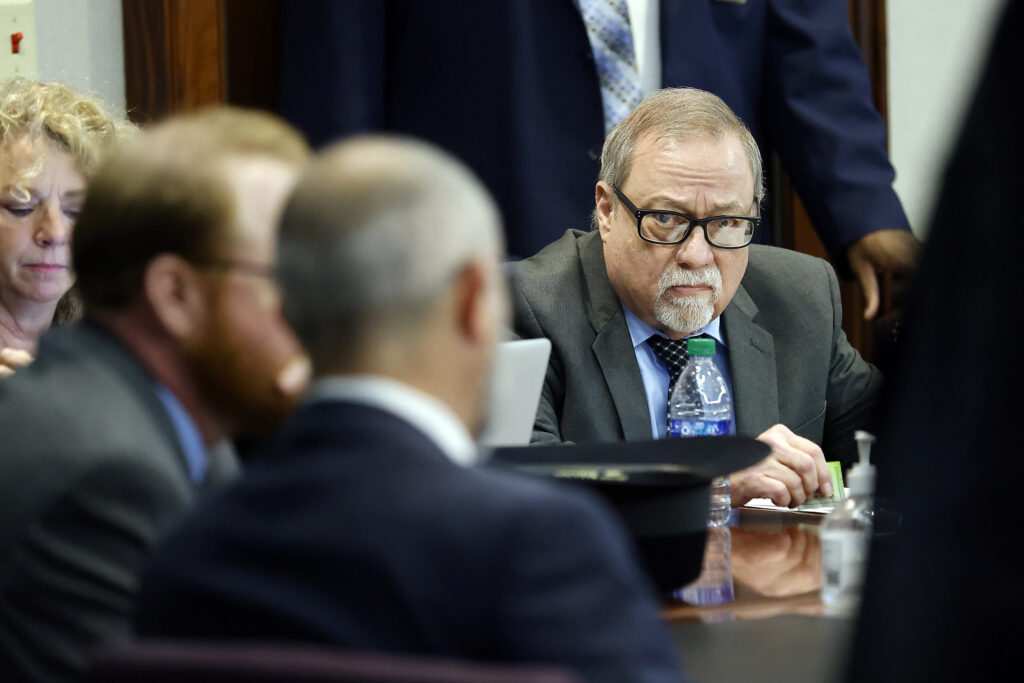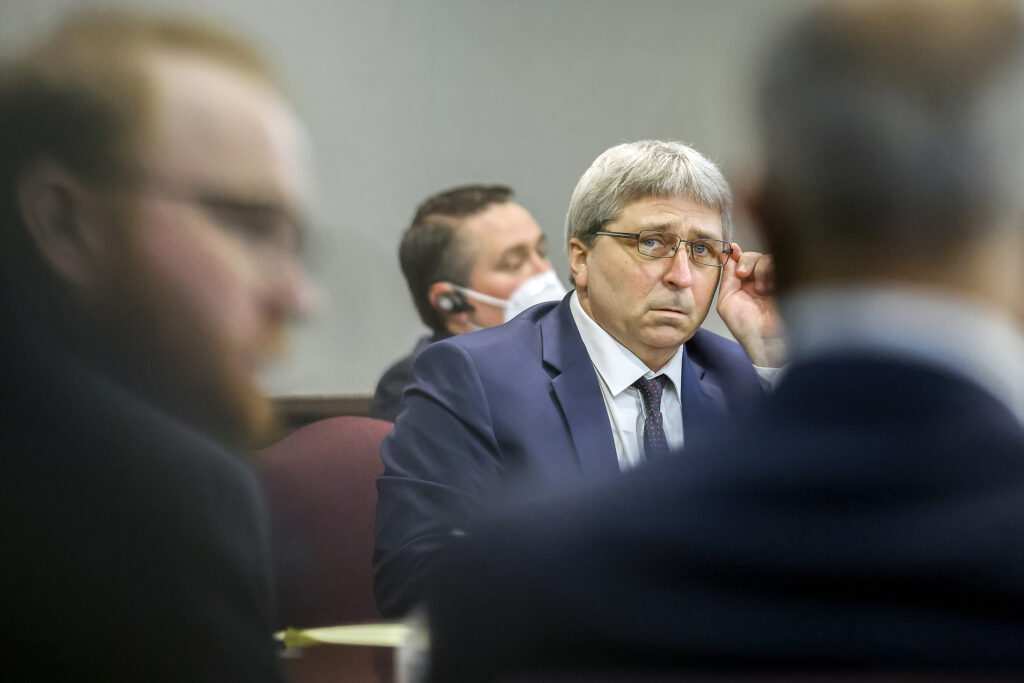Greg and Travis McMichael were sentenced Friday to life in prison without the possibility of parole, bringing an end to a grief-stricken family’s quest for justice that lasted nearly two years.
William “Roddie” Bryan, who filmed the cellphone video of Arbery falling dead in the street, was given life in prison with the possibility of parole.
Before sentencing the men, Judge Timothy Walmsley called the killing “a tragedy on many, many levels.”
“A young man with dreams was gunned down in this community,” he said of Arbery. “As we understand it, he left his home, apparently to go for a run, and ended up running for his life.”

The judge then sat silently for one minute, which he said represented “a fraction of the time” that Arbery ran through Satilla Shores.
In reaching his sentencing decision, Walmsley said he focused on the terror that must have gone through Arbery’s mind that afternoon.
“Ahmaud Arbery was then hunted down and shot,” Walmsley said. “And he was killed because individuals here in this courtroom took the law into their own hands.”
Earlier, Arbery’s mother, Wanda Cooper-Jones, wept in court as she asked the judge to give the men convicted of her son’s murder the stiffest sentence possible — life in prison without the possibility of parole.
Cooper-Jones began her victim impact statement by addressing her slain son, who was chased down and shot nearly two years ago. She called raising him “the honor of my life,” and said she vowed to get justice for him at his funeral.

“Son, I love you as much today as I did the day you were born,” Cooper-Jones said before turning her attention to the judge.
“They chose to target my son because they didn’t want him in their community,” she said. “When they couldn’t sufficiently scare him or intimidate them, they killed him.”
Travis McMichael, who killed Arbery with two shotgun blasts; his father Greg McMichael, a former police officer and investigator with the local district attorney’s office; and their neighbor, Bryan, were convicted of murder and other charges the day before Thanksgiving.
Travis McMichael is 35, his father is 66 and Bryan is 52.
Arbery, 25, was unarmed when he was chased through the Satilla Shores subdivision just outside Brunswick by the three white men in pickup trucks. He was shot killed by Travis McMichael during a struggle over the 12-gauge shotgun in the road.
The killing, captured on Bryan’s cellphone, galvanized the Coastal Georgia community and helped spark the reckoning on racial justice that swept the Unites States in 2020. The cellphone footage, released weeks before George Floyd’s murder, also proved to be a crucial piece of evidence at the state trial.
Marcus Arbery, Ahmaud’s father, said the men killed his son while he was out doing what he loved most: running.
“That’s when he felt most alive, most free, and they took all that from him,” Marcus Arbery.
He also noted that Greg and Travis McMichael sat next to each other each day of the trial, something he’ll never get the chance to do with his own son.
“The man who killed my son has sat in this courtroom every single day next to his father. I’ll never that chance ever to sit next to my son ever again,” he said. “Not a dinner table, not a holiday and not at a wedding.”
Jasmine Arbery, Ahmaud’s sister, also addressed the court. She didn’t mince words when she said she believed race played a role in the deadly shooting.
“Ahmaud had dark skin that glistened in the sunlight like gold. He had thick, coily hair and he would often like to twist it.” she said. “He was tall with an athletic build. He enjoyed running and had an appreciation for being outdoors. These are the qualities that made these men think Ahmaud was a dangerous criminal.”
Jasmine Arbery, who like her mother broke down while addressing the court, said her brother’s killing devastated their family and robbed Ahmaud of his life’s pleasures, both big and small.
“So I’m asking the men who killed him be given the maximum sentence available to the court,” she said.
Cooper-Jones said her son never said a word to his killers, never threatened them and simply “wanted to be left alone.”
During her remarks, she also also referenced the comment about her son’s “long, dirty toenails” made by Greg McMichael’s attorney during her closing argument.
“He was messy. He sometimes refused to wear socks,” she said as tears streamed down her face. “I wish he would have cut and cleaned his toenails before he went out that day. I guess he would have if he knew he would have been murdered.”
Attorney Bob Rubin, who represents Travis McMichael, had asked the judge for leniency. He said life in prison without the possibility of parole should be reserved for those who deserve it, the criminals who are the “worst of the worst.”
“This is not a case in which he just targeted someone recklessly,” Rubin said. “This was not a planned murder. This was not torture. It was a fight over a gun that resulted in Mr. Arbery’s death.”
He noted that Travis McMichael has a young son and will be well into his 60s before he’s even eligible for parole.
Bryan and the McMichaels also face federal hate crimes charges in a separate trial set to begin next month.
Shortly before Friday’s sentencing hearing, Lee Merritt, an attorney for the Arbery family, said federal prosecutors had approached the McMichaels to try to work out a plea deal and avoid trial. But the Arbery family rejected it, Merritt said.
“These men were prepared to enter a plea and admit that hate was a motivating factor,” he said. “Ultimately we rejected the deal, but I think that was strong evidence that hate was, in fact, behind their actions.”
___
© 2022 The Atlanta Journal-Constitution Distributed by Tribune Content Agency, LLC



